This article was medically reviewed by Janice Litza, MD. Dr. Litza is a board certified Family Medicine Physician in Wisconsin. She is a practicing Physician and taught as a Clinical Professor for 13 years, after receiving her MD from the University of Wisconsin-Madison School of Medicine and Public Health in 1998.
There are 13 references cited in this article, which can be found at the bottom of the page.
This article has been viewed 19,278 times.
Nerve pain, or neuropathy, can happen due to a number of different medical conditions. You may suffer from chronic nerve pain because of diabetes or problems with your spine, or you may simply have a pinched or irritated nerve from overuse or a recent injury. While chronic nerve pain may never fully heal, there are ways to help it and there are also ways to heal acute nerve pain completely. To heal your nerve pain, treat the underlying cause or medical condition, care for pinched nerves conservatively, and choose the appropriate medication or treatment for your type of pain.
Steps
Healing a Pinched Nerve
-
1Rest the area until it doesn’t hurt. The best remedy to heal a pinched nerve is rest. Avoid activities that aggravate the condition, and stop doing whatever activity caused the injury.[1]
- Sciatic nerve pain is the most common type of pinched nerve. The pain can start in your buttock or back of your upper thigh and run down the length of your leg.
- If you rest for 1-3 days and don’t notice improvement, consider getting evaluated by a medical professional.
-
2Use a brace or a splint. You may need to use an assistive device to immobilize the area of your pinched nerve. This can help make sure you rest the area and allow the nerve to heal.[2] Talk to your doctor about this, or request a referral to a specialist. Orthopedists specialize in bones, muscles, and nerve pain caused by muscle problems.
- Carpal tunnel syndrome is nerve pain in the wrist caused by overuse. A wrist splint can help heal this kind of nerve pain.
Advertisement -
3Consult a physical therapist. Pinched, stretched, and aggravated nerves can heal with rest and time – but it’s also important to prevent causing the same problem in the future. Ask your doctor for a referral to a physical therapist. They can teach you exercises to strengthen or stretch the muscles around the injured nerve. Do your exercises exactly as directed. Follow their advice on how to alter the activity that irritates the nerve.[3]
-
4Do appropriate exercises to ease sciatic pain. In addition to the exercises your physical therapist advises, you can also strengthen your body to alleviate pressure on your sciatic nerve. Ask your doctor or therapist about safe exercises to accomplish the following:[4]
- Strengthen your core
- Improve the strength of your back muscles
- Increase your hamstring flexibility
- Make your hips more flexible
-
5Apply capsaicin cream. Capsaicin is found in hot peppers. Used in cream, it provides a warming sensation. Get capsaicin cream from your local drugstore or pharmacy. Rub it over the area where you have nerve pain on a regular basis.[5]
- You might feel some burning when you apply the cream. This usually gets better over time, but stop using the product if you experience severe burning, itching, or a rash.
-
6Put on a lidocaine patch. Lidocaine numbs the area of your skin it touches. Get a lidocaine patch from your pharmacy and apply it as directed over your area of nerve pain to help alleviate the problem.[6]
- It may cause some drowsiness or dizziness.
-
7Alter your habits when you’re pregnant. Sciatic pain is common during pregnancy. If you have burning nerve pain down the back of your leg, it may be caused by pressure on your sciatic nerve from the developing baby. Try to modify your lifestyle and movements to alleviate pain; it should resolve once you deliver the baby.[7]
- Lie on your side opposite the side that hurts. For example, if your nerve pain is in your left leg, lie on your right side.
- Avoid heavy lifting.
- Try not to stand up for long periods of time.
- If you have pain while standing, lift one foot and rest it on something.
- Try swimming regularly.
- Put cold packs or heating packs on the sore area.
Dealing with a Herniated Disk and Other Spinal Problems
-
1Start with weight loss to treat a spinal cord compression. A herniated disk in your spine or spinal stenosis can squeeze your spinal cord, causing nerve pain throughout parts of your body. Where the pain is located depends on where your spinal cord is squeezed.[8] If you have a herniated disk or spinal stenosis, try to reach and maintain a healthy weight.[9] Sometimes, just losing some extra weight through a healthy diet low in fat and sugar can somewhat improve your pain.
-
2Try electrical stimulation. Talk to your doctor or a physical therapist about electrical stimulation for your nerve pain. This can be especially helpful for nerve problems due spinal issues or diabetes. Use a TENS machine (transcutaneous electrical nerve stimulation) 30 minutes a day for a month to see if your nerve pain improves.[10]
-
3Have the disk surgically repaired. In severe cases, you may need surgery to heal your nerve pain. A spinal surgeon may be able to fix your injured vertebrae, relieving pressure on your spinal cord and improving your nerve pain. Talk to your doctor about your options – you will need x-rays and probably a CT or MRI to know if surgery is right for you.[11]
- Surgery may also help for severe carpal tunnel syndrome or pinched nerve pain that doesn’t resolve after months of conservative treatment.[12]
Treating Medical Causes of Neuropathy
-
1Control your blood sugar. Diabetes is a leading cause of nerve pain, especially in your hands and feet. If you have high blood sugar, work closely with your doctor or diabetes nurse to control it. You may be able to prevent or minimize nerve pain by appropriately managing your diabetes.[13]
- Ask your doctor to test your blood sugar if diabetes runs in your family. Making diet and lifestyle changes are the safest and easiest ways to prevent nerve pain from diabetes.
-
2Treat your shingles. Shingles is the illness that you can get if you’ve ever had chickenpox – the virus lives in your nerves and can reactivate later in life, causing burning nerve pain.[14] If you have shingles, see your doctor. They can prescribe medication to help alleviate your symptoms. Shingles will resolve over time, and usually your nerve pain will go away.
- Your doctor may give you antiviral medication to speed up healing time. They may also give you a medicine to make your pain more manageable.
- Shingles looks like a rash of blisters that occurs in a straight line, causing pain, itching or burning. It usually occurs on only one side of your body, and usually is located over your ribs – though it can occur anywhere on your body or face.
- If you’re over 60 years old, get the varicella zoster vaccine (Zostavax). This can help prevent shingles.
-
3Take medication to treat your herpes. Herpes is a virus that lives in your nerves, so flare-ups can cause nerve pain. Talk to your doctor about taking acyclovir or another antiviral medication to prevent and treat herpes outbreaks.[15]
-
4
-
5Treat HIV neuropathy with medication. Many HIV patients suffer from chronic nerve pain. This pain usually shows up initially as a tingling sensation or numbness in the hands and/or feet. Talk to your doctor about taking antidepressants, analgesics, or anti-seizure medications to reduce nerve pain caused by HIV.[18]
Taking Medications to Improve Nerve Pain
-
1Ask your doctor about taking anti-seizure medications. Anti-seizure medicines (anticonvulsants) are often the first treatment choice for some types of nerve pain. Ask your doctor about your options. Gabapentin (Gralise, Neurontin) and pregabalin (Lyrica) cause fewer side effects than older medicines, but can still cause dizziness and drowsiness.[19]
- Anticonvulsants are most commonly used to treat neuropathy caused by diabetes, herpes, and injuries to your spinal cord.
-
2Discuss using carbamazepine for facial nerve pain. Carbamazepine (Carbatrol, Tegretol) is an anti-seizure medication commonly prescribed to treat some types of nerve pain.[20] Talk to your doctor about whether this medication is safe and appropriate for you to take. It can cause side effects like headache, nausea, and liver damage.
- Carbamazepine is especially useful in a nerve problem called trigeminal neuralgia. This causes searing nerve pain on one side of your face.
-
3Talk to your doctor about taking an antidepressant. Some antidepressant medications may improve nerve pain, so discuss your options with your doctor. Amitriptyline, nortriptyline, and doxepin may improve pain. They can cause side effects such as dry mouth, blurry vision, constipation, and a hard time urinating.[21]
- For nerve pain in your hands and feet caused by diabetes, Cymbalta or Effexor XR may help.
-
4Try pain medications. For mild nerve pain, over-the-counter pain medicine may help. Try a non-steroidal anti-inflammatory (NSAID) like ibuprofen (Advil) or naproxen, or acetaminophen (Tylenol). Talk to your doctor or pharmacist first if you have any medical conditions that affect your kidneys, liver, or stomach. For severe pain that is not relieved by OTC medicine, ask your doctor for a referral to a Pain Management specialist. They may prescribe you stronger medication, like Tramadol or Hydrocodone.[22]
- Opioid pain medications should only be used for a short time. They can become addictive.[23]
-
5Get a corticosteroid injection. Depending on the location and cause of your nerve pain, an injection with a corticosteroid may help. This relieves inflammation and can calm pain. Ask your doctor about this if you have a pinched nerve.[24] It isn’t helpful for nerve pain caused by medical conditions like diabetes.
- You may also be able to take a steroid pill, but this causes far more side effects.
-
6Try medical marijuana if it’s legal in your state. Studies have proven that in many cases, neuropathy may be relieved by medical marijuana.[25] If it’s legal in the state you live in and other treatment options haven’t worked for you, consider asking your doctor about taking medical marijuana to ease your nerve pain.
Warnings
- All anti-seizures medications and some antidepressants carry a small risk of causing depression or suicidal thoughts. Talk to your doctor immediately if this happens. You can also call emergency services or contact a local help-line, such as the National Suicide and Crisis Lifeline (in the U.S.) at 988.⧼thumbs_response⧽
References
- ↑ https://my.clevelandclinic.org/health/diseases/6481-pinched-nerves
- ↑ https://my.clevelandclinic.org/health/diseases/6481-pinched-nerves
- ↑ https://my.clevelandclinic.org/health/diseases/6481-pinched-nerves
- ↑ https://www.spine-health.com/conditions/sciatica/sciatica-treatment
- ↑ https://www.drugs.com/mtm/capsaicin-topical.html
- ↑ https://www.drugs.com/cdi/lidocaine-patch.html
- ↑ http://americanpregnancy.org/pregnancy-health/sciatic-nerve-pain-during-pregnancy/
- ↑ http://www.mayoclinic.org/diseases-conditions/peripheral-neuropathy/in-depth/pain-medications/art-20045004
- ↑ http://www.latimes.com/socal/hb-independent/entertainment/tn-hbi-et-1001-mayo-clinic-20151001-story.html
- ↑ http://www.mayoclinic.org/diseases-conditions/peripheral-neuropathy/diagnosis-treatment/treatment/txc-20205118
- ↑ http://www.mayoclinic.org/diseases-conditions/peripheral-neuropathy/diagnosis-treatment/treatment/txc-20205118
- ↑ http://www.mayoclinic.org/diseases-conditions/pinched-nerve/diagnosis-treatment/treatment/txc-20314371
- ↑ http://www.mayoclinic.org/diseases-conditions/peripheral-neuropathy/in-depth/pain-medications/art-20045004
- ↑ http://www.mayoclinic.org/diseases-conditions/peripheral-neuropathy/in-depth/pain-medications/art-20045004
- ↑ http://www.mayoclinicproceedings.org/article/S0025-6196(15)00105-6/fulltext#sec6
- ↑ http://www.mayoclinic.org/diseases-conditions/peripheral-neuropathy/in-depth/pain-medications/art-20045004
- ↑ http://www.mayoclinic.org/diseases-conditions/peripheral-neuropathy/diagnosis-treatment/treatment/txc-20205118
- ↑ http://www.hopkinsmedicine.org/neurology_neurosurgery/centers_clinics/peripheral_nerve/conditions/hiv_neuropathy.html
- ↑ http://www.mayoclinicproceedings.org/article/S0025-6196(15)00105-6/fulltext#sec6
- ↑ http://www.mayoclinic.org/diseases-conditions/peripheral-neuropathy/in-depth/pain-medications/art-20045004
- ↑ http://www.mayoclinic.org/diseases-conditions/depression/in-depth/antidepressants/art-20046983
- ↑ http://www.mayoclinic.org/diseases-conditions/peripheral-neuropathy/diagnosis-treatment/treatment/txc-20205118
- ↑ http://www.mayoclinicproceedings.org/article/S0025-6196(15)00105-6/fulltext#sec6
- ↑ http://www.mayoclinic.org/diseases-conditions/pinched-nerve/diagnosis-treatment/treatment/txc-20314371
- ↑ http://www.jwatch.org/ac200704300000001/2007/04/30/marijuana-painful-peripheral-neuropathy
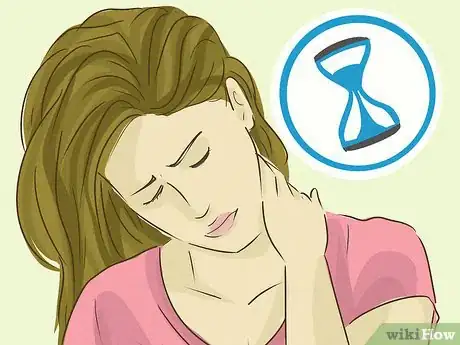
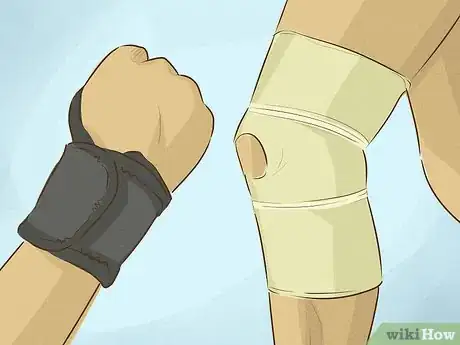
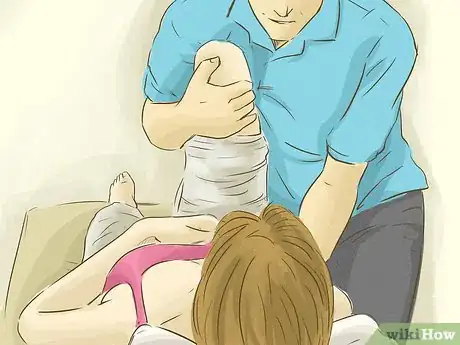
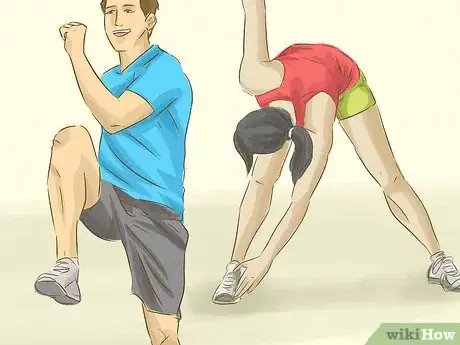
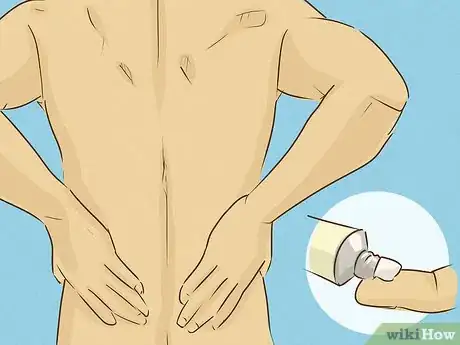
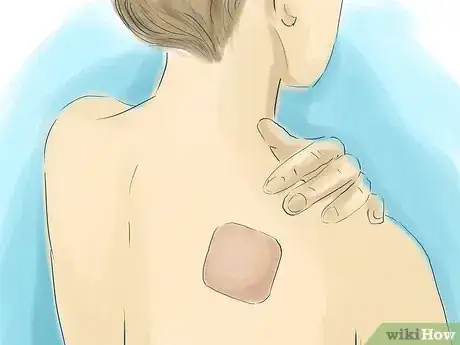

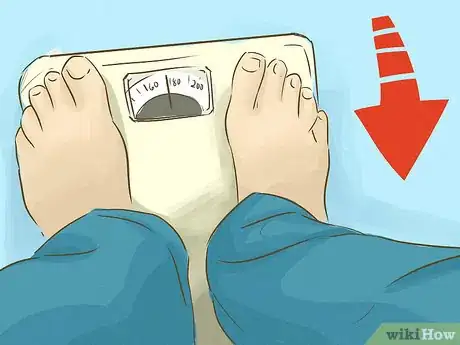
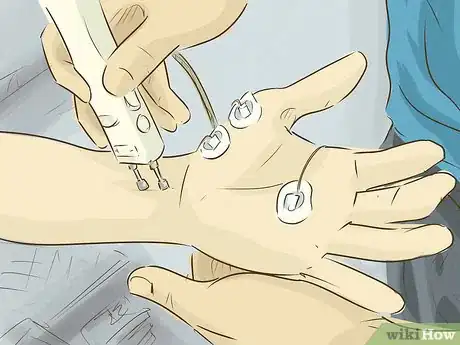
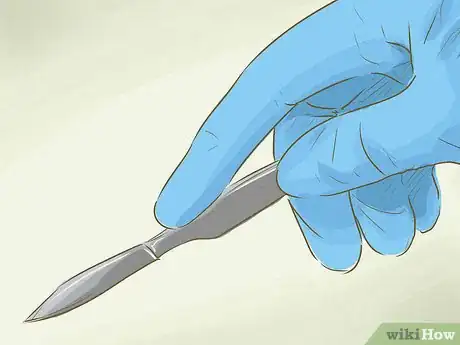
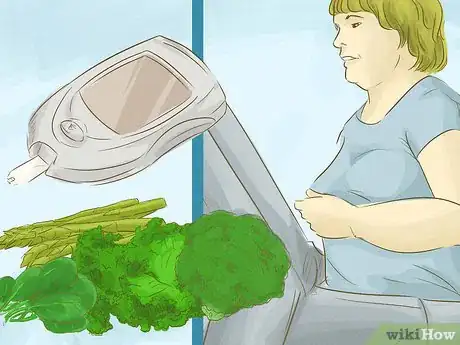
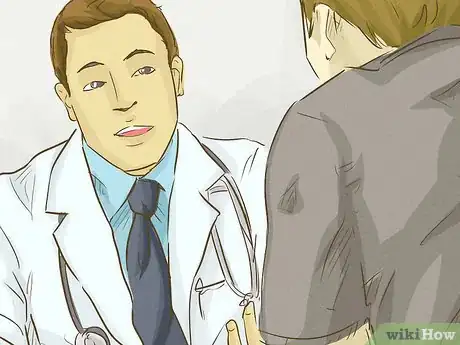
-Step-6-Version-2.webp)
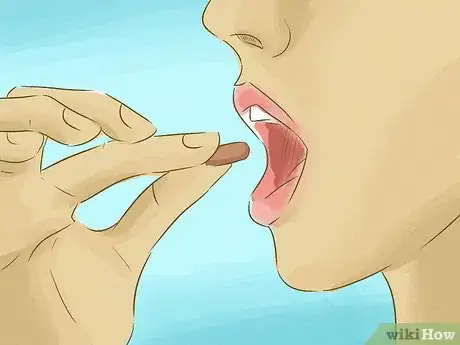
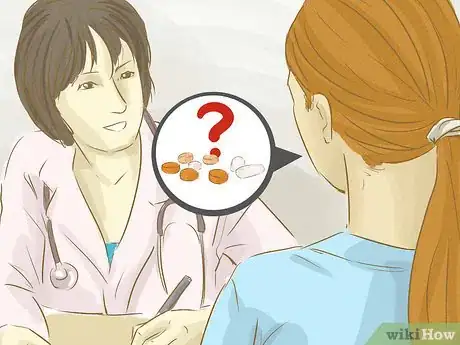
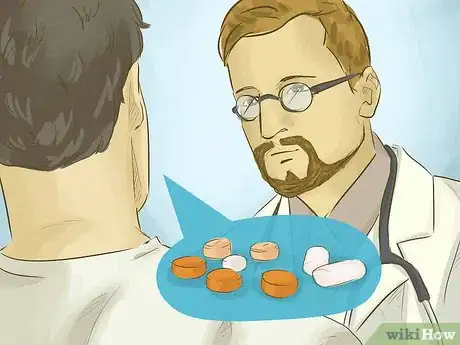
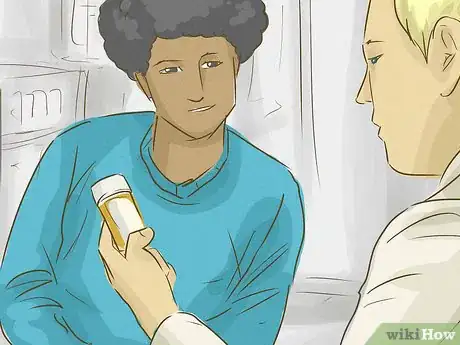
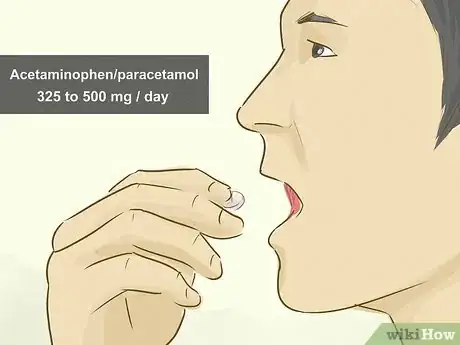
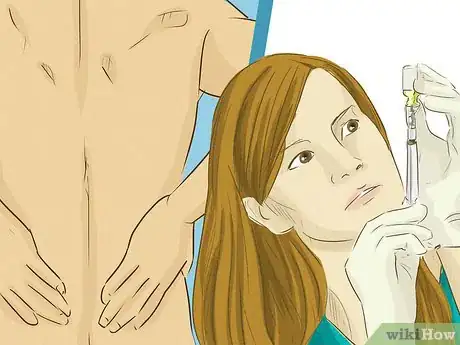



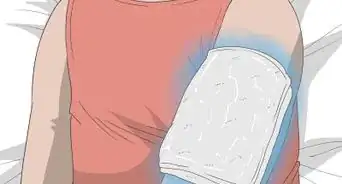
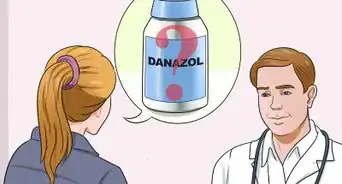
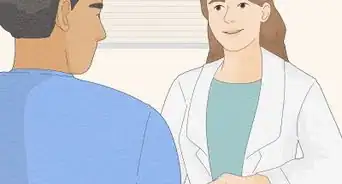

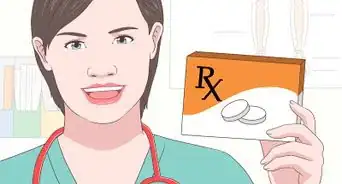
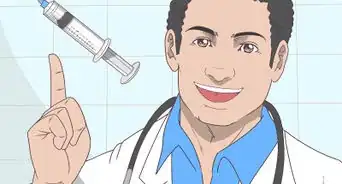
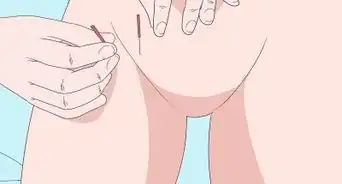
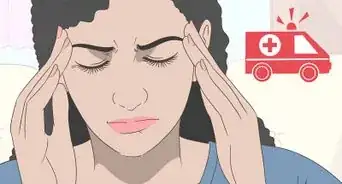
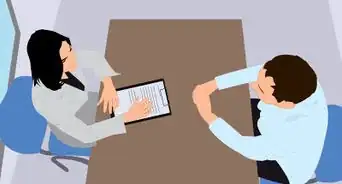
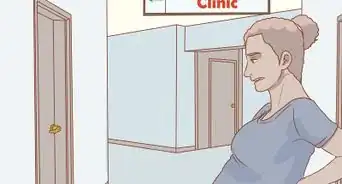
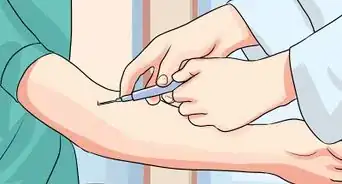








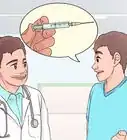





































Medical Disclaimer
The content of this article is not intended to be a substitute for professional medical advice, examination, diagnosis, or treatment. You should always contact your doctor or other qualified healthcare professional before starting, changing, or stopping any kind of health treatment.
Read More...